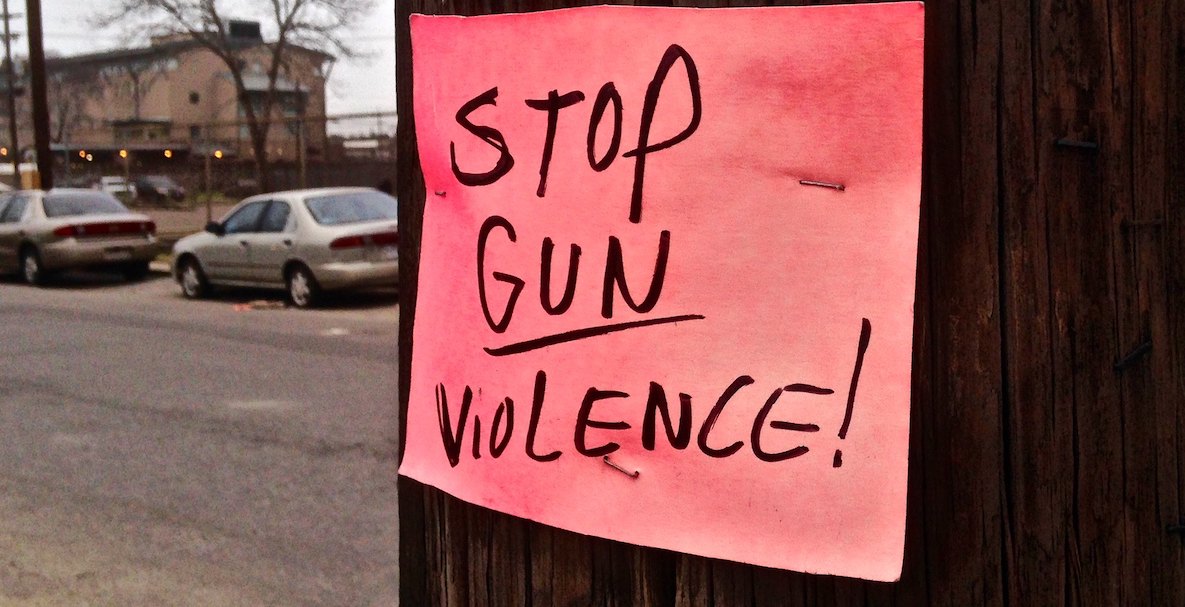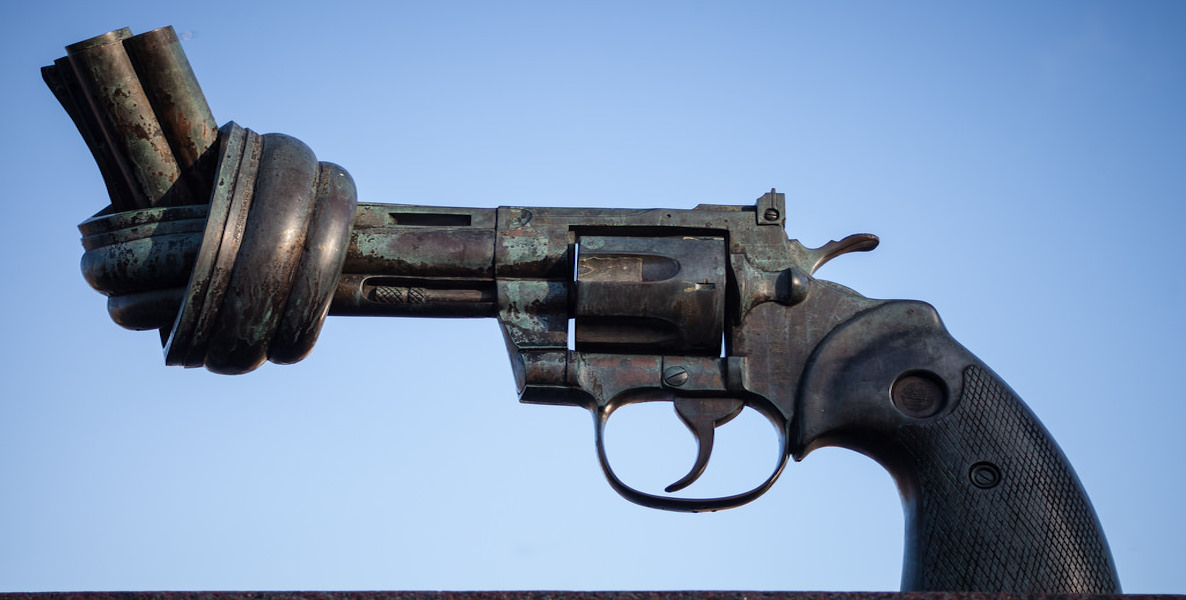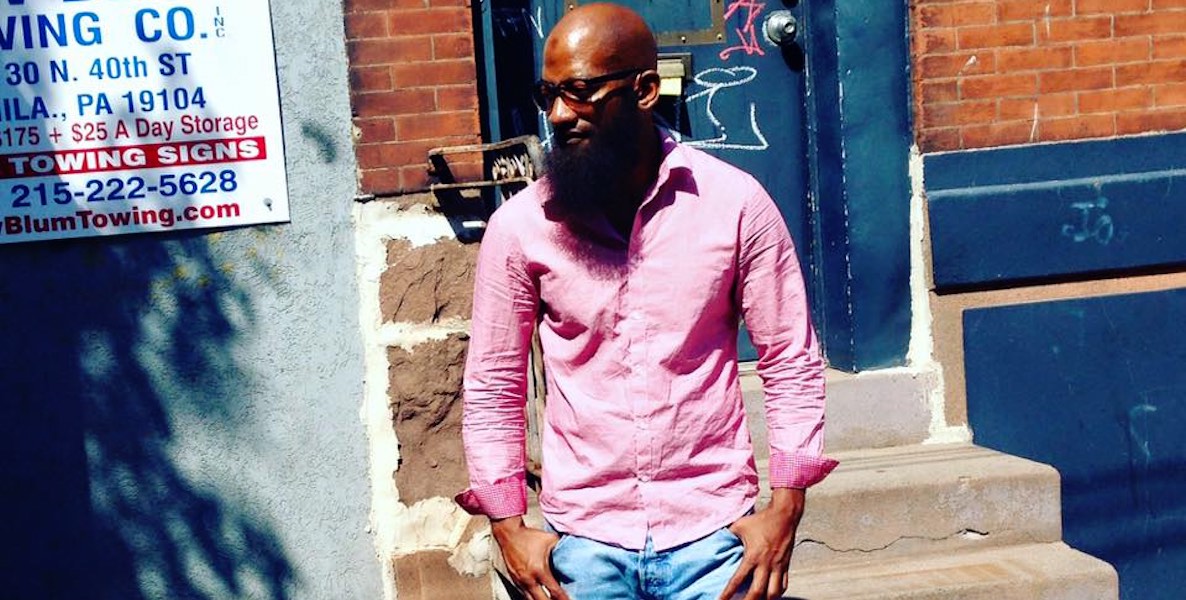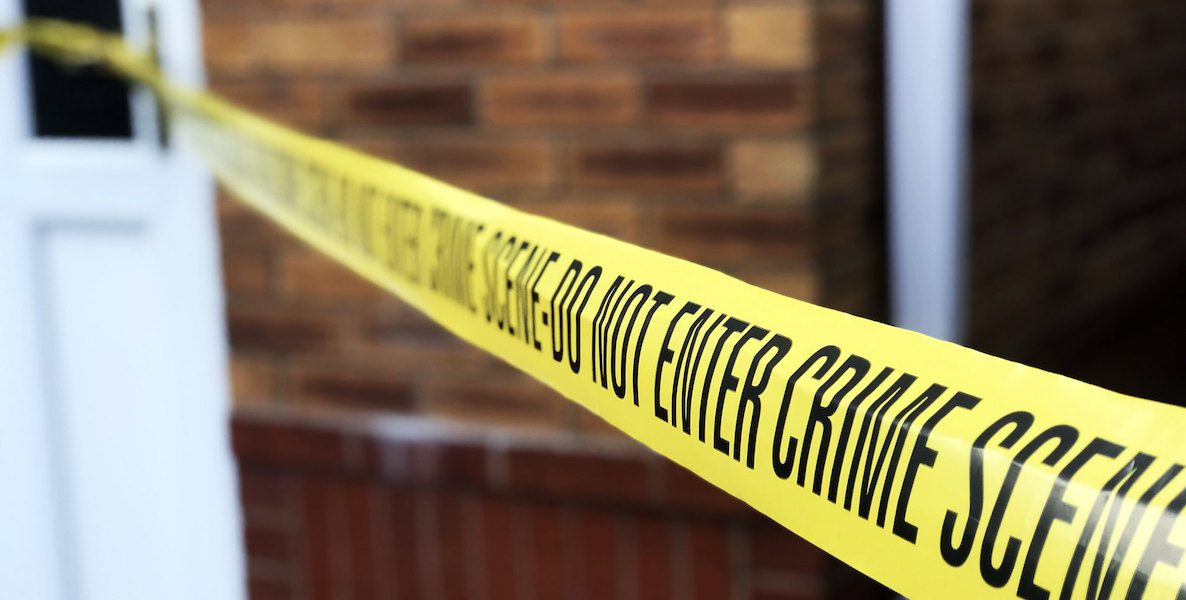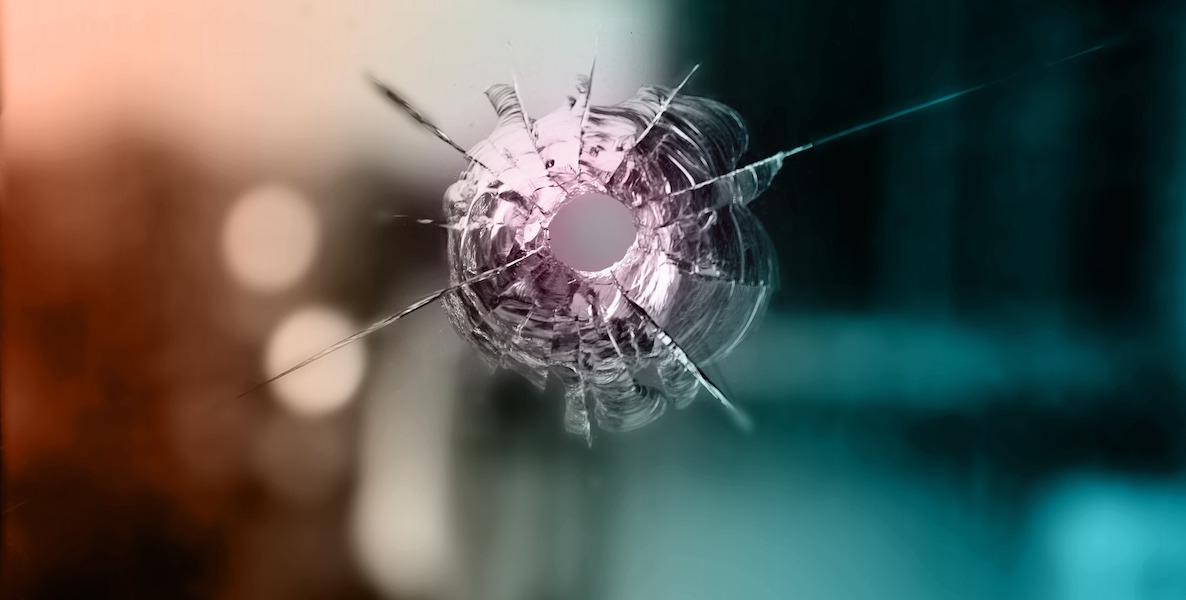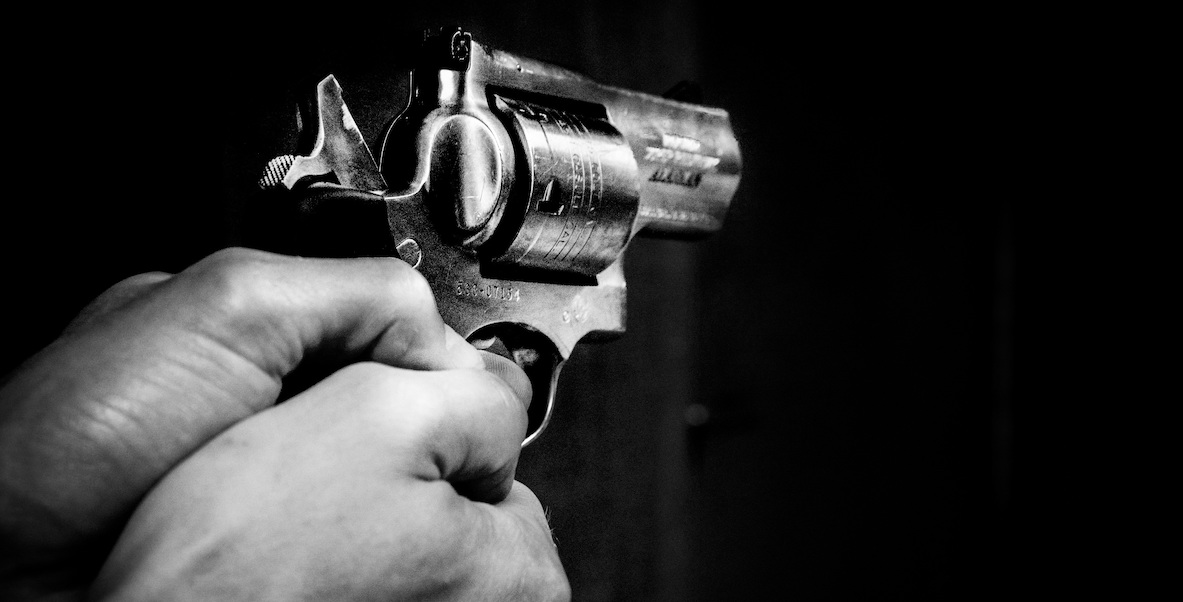![]() Try as we may to ignore it, we can’t continue using stay-at-home as an excuse not to talk about it: even during lockdown, Philly still has a violence problem … and it’s showing fewer signs of trending downward.
Try as we may to ignore it, we can’t continue using stay-at-home as an excuse not to talk about it: even during lockdown, Philly still has a violence problem … and it’s showing fewer signs of trending downward.
As of this writing, there are 127 homicides in Philadelphia since the start of 2020 (it keeps rising each day). That’s 19 percent more than what it was this same time last year (107). The last time we were that close to 130 murders by the end of April was in 2007.
All this week, we haven’t seen the homicide rate go below 16 percent more than where it was in 2019. And while the latest Philadelphia police report shows a very modest, barely noticeable 1.7 percent decline in “aggravated assaults” by gun in the past 28 days, that is the first such decline we’ve seen in the past eight weekly reports.
That’s concerning, especially when you’d expect to see less of this during a sustained period of citywide lockdown.
City leaders are up to their eyeballs, of course, in pandemic. And the lack of public focus and conversation on homicides is similar to what we’re seeing in hospitals across America where doctors and nurses are witnessing a sharp decline, almost disappearance, of medical needs that are not related to Covid-19. But, that doesn’t mean it’s not there. And that doesn’t mean the city’s police department should be less responsive to it.
A new police commissioner could have presented us with an opportunity to not only refresh the conversation between police and Philly communities, but it should have forced a pivot into a new kind of conversation, something completely different and revamped.
Which raises the question: Where is the relatively new Police Commissioner Danielle Outlaw in all this? Of course, she can’t be outside and in front of cameras right now; no one wants a sick or infected police commissioner. But residents do want to know their public safety commander is a lot more present in the midst of both pandemic and a spate of rising violence.
Philly is, actually, unique compared to other, much larger sister cities—before and during pandemic. New York City is a metropolis of nearly 9 million people and it has yet to hit 100 homicides in 2020. Last check it was at 92. Murders have been 5.7 percent higher than what they were last year; it’s an increase, for certain, but nothing near Philly’s 19 percent. Plus: Philly hasn’t even dropped below the 10 percent higher mark these past, first several months.
![]() Los Angeles is a city of more than 4 million and also much under lockdown. It hasn’t even hit the 100 homicide mark, currently at 81 homicides in 2020 so far (any homicide is way too many, but you see the difference). Not only has there been a more than 33 percent drop in homicides the last 28 days, but also a 1.3 percent drop from the previous year.
Los Angeles is a city of more than 4 million and also much under lockdown. It hasn’t even hit the 100 homicide mark, currently at 81 homicides in 2020 so far (any homicide is way too many, but you see the difference). Not only has there been a more than 33 percent drop in homicides the last 28 days, but also a 1.3 percent drop from the previous year.
Still, it should be noted, as Bonnie Kristian in The Week notes, that overall crime throughout the nation during lockdown varies according to city, according to how police are interacting with the community, and depending on crime. Domestic violence, for example, is worryingly on the rise, due to people being quarantined in unsafe situations. In Miami, on the other hand, the overall crime rate is down—largely because police have stopped issuing citations for non-violent offenses—and it also saw no homicides for a full seven-week period, which hasn’t happened since 1964.
For Philly, there are big questions still unanswered. What is the plan to address this spike in violence and is it any different from previous plans? How differently can it operate, especially during a pandemic?
Commissioner Outlaw this week began to quietly relax the social distancing and lockdown mandates that have been governing Philly policing for over a month now. Police officers can now go back to “on-site arrests” for what were various crimes that were de-prioritized during pandemic, things like burglaries and auto thefts for example.
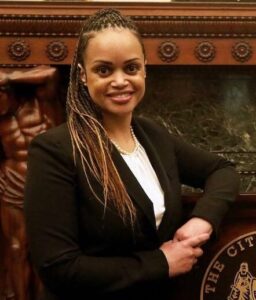
Outlaw explains that she’s concerned about “… the approach of consistently warmer weather, an increase in retail thefts…and an increase in burglaries.” Robberies by gun are nearly 8 percent higher now than they were around this time last year.
But, it’s that homicide rate that has her concerned, naturally, the most. Maybe part of the problem is the overall message Philly is signaling as a city on the subject of violent crime: between relaxed pandemic-era arrest guidelines and the fact that the majority of homicides in the city aren’t being solved, perception is that crime is allowed to happen. We need an immediate shift for more visibility since the pandemic, in a city already struggling with murder, took that away.
The Center for American Progress has some policing recommendations, but makes a larger point worth noting: “In making these changes, we must remember that less is not necessarily bad. The police alone cannot make a community safe. And we have learned over the years that simply adding more police does not equate to more public safety. It takes an entire community working with the police to sustain long-term public safety,” notes former police chief Ron Davis in the report. Circling in on domestic violence also stands out as one strategy that could stop violence from spreading.
![]() And maybe that’s what’s been missing in Philly: a more creative collaborative, pandemic-moment police-community partnership that’s much more closely knit than it’s been in the past. Is the Philadelphia police department personable? A new police commissioner could have presented us with an opportunity to not only refresh the conversation between police and Philly communities, especially those dealing with the most violence, but it should have forced a pivot into a new kind of conversation, something completely different and revamped.
And maybe that’s what’s been missing in Philly: a more creative collaborative, pandemic-moment police-community partnership that’s much more closely knit than it’s been in the past. Is the Philadelphia police department personable? A new police commissioner could have presented us with an opportunity to not only refresh the conversation between police and Philly communities, especially those dealing with the most violence, but it should have forced a pivot into a new kind of conversation, something completely different and revamped.
Instead, it simply felt like a ceremonial baton passing from one chief to the next. Even when the pandemic hit, Outlaw could have been a much more forceful, commanding personal presence looking for innovative ways to personalize the connection with residents anxious and traumatized from both Covid-19 and violence. Personalized policing, along with open and public partnerships with longtime civic, religious and advocacy institutions beyond the normal parameters would go a long way.
Outlaw will need to quickly transition from being, simply, a big city police chief to something perceptibly more: a major public face and personality that helps increase community confidence.
Outlaw has got to shake things up a bit. And when we say “shake up,” we don’t mean in terms of internal management or personnel changes.There must be a dramatic display of accessibility, or extra time put into that. Of course, social distancing limits the ability to get physically closer to residents. But, that’s where the technology steps in: Outlaw, whether she likes it or not, needs to get a lot more active on her social media platforms. Instead, her Twitter feed is dry: it shows little, if any, emotion and it hasn’t been updated since April 15th.
That’s not saying a police commissioner or any public official should spend an inordinate amount of time pushing tweets and Instagram selfies. But, in a time like this, use it to make personal connections or to show you care.
![]() What digital tools are at the police department’s disposal to make it more approachable to the larger, anxious public? Can they send out daily text updates the same way an agency like the Office of Emergency Management does, offering everything from the latest homicide alert to much softer information like numbers victims can call or police-specific resources they can tap in to. Can she host online press conferences or town halls to answer questions, like both Mayor Kenney and schools Superintendent Bill Hite do regularly?
What digital tools are at the police department’s disposal to make it more approachable to the larger, anxious public? Can they send out daily text updates the same way an agency like the Office of Emergency Management does, offering everything from the latest homicide alert to much softer information like numbers victims can call or police-specific resources they can tap in to. Can she host online press conferences or town halls to answer questions, like both Mayor Kenney and schools Superintendent Bill Hite do regularly?
Post-pandemic, that approach should expand beyond the Commissioner. For example, everyone in City Hall, from the mayor to the City Council president to Councilmembers themselves should have long ago come up with a system of visiting every wounded violence victim in a hospital, prioritizing children, when moments strike. If those sorts of visitations can happen at a moment’s notice, rightfully so, for wounded police officers, it should happen for residents too.
It sends a message that not only does City Hall put a high premium on every life in Philadelphia, but that everyone else should, too.
How aggressive can the policing strategies be? Residents are nervous now, understandably, and want a more robust police response. But, if police do start ramping up a much more muscular strategy, they risk the ire of critics who will, after demanding stronger police presence, complain about racial profiling, harassment and brutality. How do you strike that balance between public safety and civil rights? That’s where the personalized, trauma-informed model takes hold.
Still, there’s that elephant in the room: the ever-looming question of Philly’s still under-performing homicide division? The homicide clearance rate is in the low 40 percentile, compared to the national average of nearly 62 percent. So, what’s going on there? Why is Philly, tragically, so special in such a bad way? How is the Commissioner holding her homicide division accountable?
The homicide clearance rate is in the low 40 percentile, compared to the national average of nearly 62 percent. Why is Philly, tragically, so special in such a bad way? How is the Commissioner holding her homicide division accountable?
Nationally, we’ve seen a decline in homicide clearance rates for black victims, especially compared to other demographic groups, according to the Murder Accountability Project. That means if you’re black, and you get murdered, there’s less chance your murderer will be caught. It’s just 61 percent nationally for blacks, versus nearly 80 percent homicide closures for whites and 74 percent for Asians, according to an analysis released in February by the MAP.
Are we not worried about how that looks in a city, like Philadelphia, that’s nearly 45 percent black? Is Philly’s homicide division culturally sensitive enough, and competent enough, to understand it and to defy that trend? In a city that’s nearly half black and where African Americans account for over 80 percent of homicide victims, black political leadership and its black police commissioner have to show much more urgency around this issue. Something rather tectonic and substantial, such as a complete overhaul, must be done with that division. And it must be really public when it happens. That’s not a lot to ask when lives are at stake.
It’s already this bad in spring … and in a lock down. Until you no longer have a 60 percent chance of getting away with murder in the city of Philadelphia, we’re stuck with a situation that’s likely to worsen in summer unless real change happens now. Outlaw will need to quickly transition from being simply a big city police chief to something perceptibly more: a major public face and personality that helps increase community confidence.
Charles D. Ellison is executive producer and host of “Reality Check,” which airs 11 a.m. to 1 p.m. Monday through Thursday on WURD Radio (96.1FM/900AM). Check out The Citizen’s weekly segment on his show every Wednesday at noon. Ellison is also principal of B|E strategy. Catch him if you can @ellisonreport on Twitter.
Photo: Pixabay


